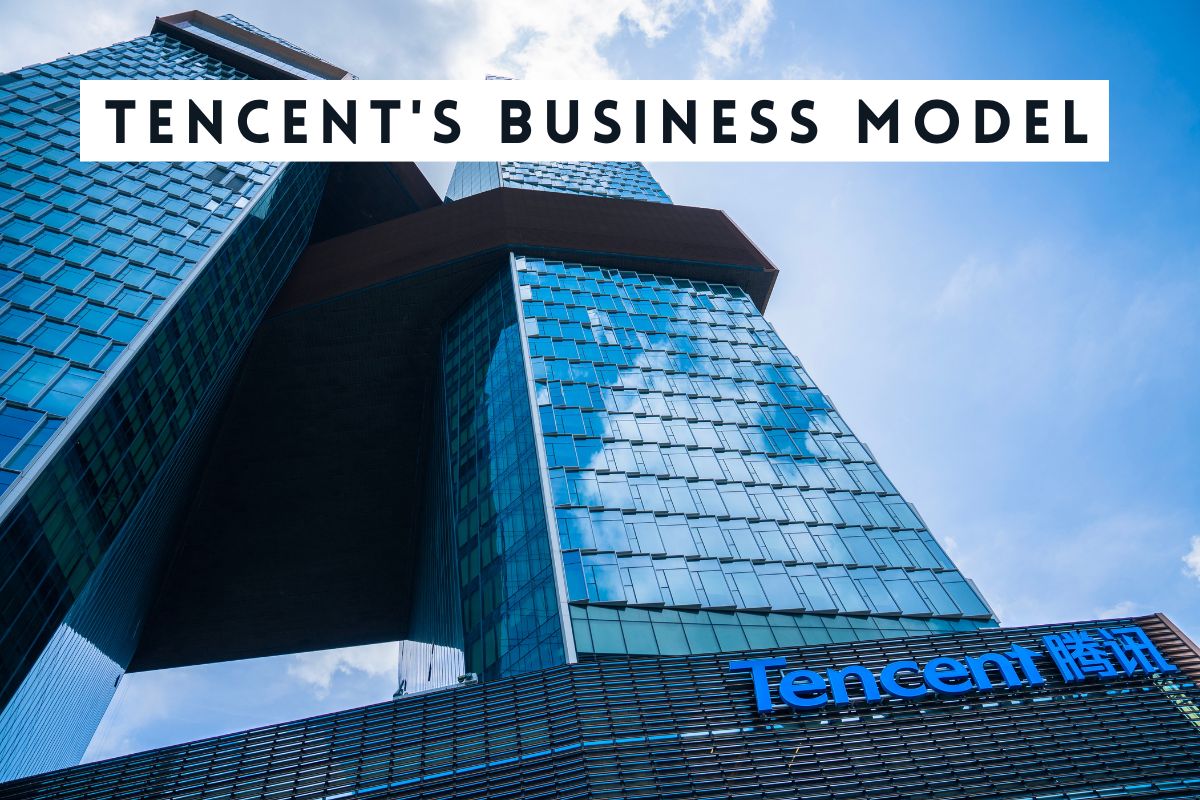Tencent is a tech giant that has revolutionized the way people interact with social media in China. The company’s business model is unique, as it offers a platform for users to connect with friends and access a range of services, including gaming and advertising. In this article, we will explore Tencent’s business model and why it has been so successful.
Table of Contents
ToggleIntroduction
Tencent Holdings is one of the most prominent technology companies in China, with a focus on sustainability, innovation, and shaping the digital future of industries within the economy. Founded in 1998, the corporation has offices across Asia, including Tokyo, Seoul, Amsterdam, and Palo Alto, California. The company functions in a series of technology-related spheres, including video gaming, social media, entertainment, streaming and cloud services, and advertising. Tencent aims to be a leader in retail, healthcare, education, and transport with a focus on artificial intelligence (AI).
Tencent’s Business Segments
Tencent’s corporate structure is divided into six different groups, including the Corporate Development Group, Cloud & Smart Industries Group, Interactive Entertainment Group, Online Advertising Group, and more. The company’s products and services include instant messaging, online media, wireless internet value-added services, interactive media services, social apps, online advertising, and cloud services.
Corporate Development Group
The Corporate Development Group researches and develops new businesses, including financial technology, advertising, and marketing. This includes Business Tenpay, China’s leading online payment platform, providing an integrated payment service for B2B e-commerce platforms.
Cloud & Smart Industries Group
This group caters to the company’s internet and cloud services, putting Tencent’s footprint in the digital assistant space in a variety of sectors, including financial, retail, and health care. It also includes Tencent Cloud, a cloud computing and data intelligence platform that provides services to a wide range of industries.
Interactive Entertainment Group
Tencent is a leading provider of video gaming services, with popular offerings such as Tencent Games, QQ, and Tencent Pictures. The Interactive Entertainment Group is responsible for Tencent’s gaming division, including the development, publishing, and operation of online games.
Online Advertising Group
The Online Advertising Group is responsible for Tencent’s advertising business, which includes online advertising and social advertising. It focuses on developing advertising solutions for Tencent’s ecosystem, including WeChat and QQ.
Monetisation Strategy
Tencent’s monetization strategy is multifaceted and has proven to be highly effective. One of the key drivers of its revenue growth is the company’s focus on advertising, with its advertising business generating the largest share of the revenue. Tencent’s advertising services include display advertising, sponsored content, and social advertising, which are targeted to specific demographics and user interests. Additionally, Tencent’s social media platforms, such as WeChat and QQ, have integrated e-commerce and payment features, allowing users to purchase products directly within the app. Tencent also generates revenue from its online gaming and digital content businesses, such as Tencent Games and Tencent Pictures, as well as its fintech offerings, Weixin Pay and Credit Card Repayment. The company has continued to diversify its revenue streams through investments in various industries, such as healthcare and education, with a focus on leveraging its technological expertise and user base.
Customer Relationships
Tencent’s platform is self-service, meaning that users don’t talk to anybody from Tencent. The channels that users interact with Tencent are the web and the mobile channels. These channels are critical for engaging users, retaining customers, and re-engaging customers. The company focuses on keeping its customers coming back for more rather than acquiring new customers.
Competitive Advantages
Tencent’s competitive advantage lies in its research and development department. 50% of its staff are research and development experts. This is almost unprecedented in most Western companies. Tencent’s belief is that they can create better and faster content that will keep their audience engaged better than anybody else.
This focus on research and development has given Tencent a vast amount of IP and support of patents, making it difficult for Western companies to enter the Chinese market. The company’s early investment in corporate social responsibility has also helped it keep the Chinese government on board.
Conclusion
In conclusion, Tencent Holdings has emerged as one of the most innovative and successful technology companies in China, with a focus on sustainability, innovation, and shaping the digital future of industries within the economy. With a diversified portfolio of products and services, Tencent has strategically positioned itself in various technology-related spheres, including video gaming, social media, entertainment, streaming and cloud services, and advertising. Its monetisation strategy, which includes a focus on advertising, integrated e-commerce and payment features, online gaming and digital content businesses, and fintech offerings, has proven to be highly effective. Furthermore, Tencent’s commitment to research and development has resulted in a vast amount of intellectual property and the support of patents, making it difficult for Western companies to enter the Chinese market.
Tencent’s success lies in its ability to leverage its technological expertise and user base to diversify its revenue streams and maintain a competitive advantage.
Additional Resources
To keep learning and advancing your career, we highly recommend these additional resources:
IBM’s Business Model: Analysis of the Tech Giant’s Operations
Amazon’s Business Model: From Click to Doorstep
Tesla’s Business Model: An Analysis of Their Unique Approach to Sustainable Transportation
Airbnb’s Business Model: How Does Airbnb Make Money
TikTok’s Business Model: How the App Attracts Gen Z and Brands
Microsoft’s Business Model: How the Tech Giant Makes Money
Spotify’s Business Model: How Spotify Became the King of Music Streaming












